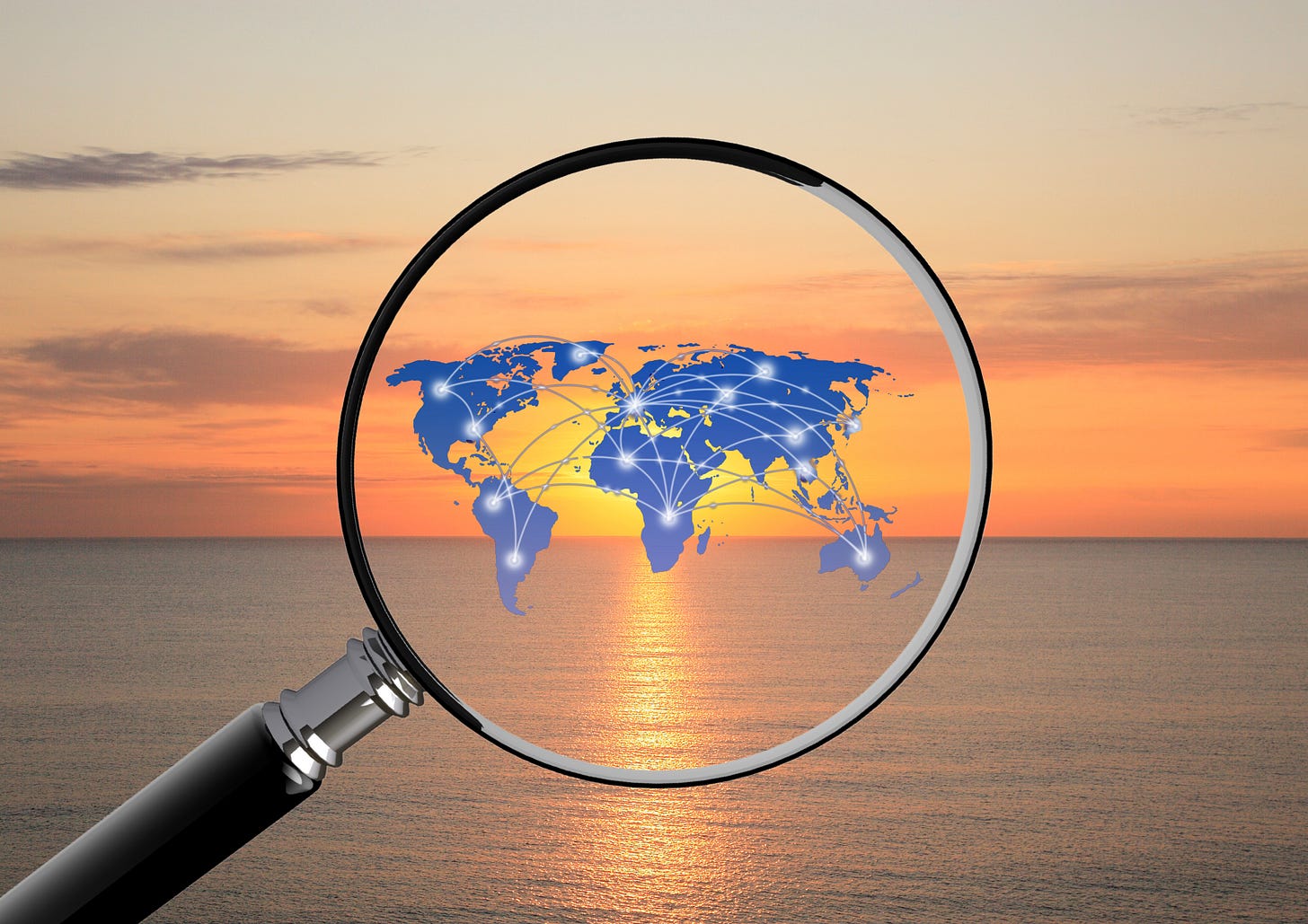The Horizon: Scale Becomes the System
Week of 7 Nov 2025 - Markets signal AI unease, OPEC+ signals restraint, and the EU signals cautious enlargement approach
Top Signal: Markets Raise Concerns About Potential AI Bubble
This week, the scramble for AI computing power collided with market volatility. The intense demand for AI chips, components, and infrastructure has driven a surge in investment. However, this rapidly growing sector is also experiencing amplified market volatility as prices and valuations adjust in response to macroeconomic conditions, investor behaviour, and supply bottlenecks. This week, stock markets looked like they were “on the verge” of a correction as volatile trading wiped $500bn off the value of AI chipmakers. Meanwhile, this week it was reported that Michael Burry, the investor who famously predicted the subprime mortgage bubble nearly two decades ago, is betting that two key AI stocks will decline. We may be in an AI bubble, but the chief executive of one of those key stocks, Jensen Huang, of Nvidia, suggested this week that we are in the beginning of the “build-out” phase. Meanwhile, the chief executive of the other, Alex Karp of Palantir, reportedly criticised Burry and other short-sellers for questioning the AI revolution. Yahoo! Finance, Digit WSJ The Times The Guardian
Key Signals This Week
OpenAI–AWS Megadeal: Related to this week’s top signal is the multibillion-dollar multi-year deal announced this week within the AI sector, in which OpenAI has confirmed it has signed a seven-year, $38 billion deal to buy cloud services from Amazon Web Services. The deal will give OpenAI access to hundreds of thousands of advanced Nvidia graphics processors and can help it cement hyperscale power. Some estimates suggest the company has agreed on about $1 trillion worth of infrastructure deals in 2025, including a project with Oracle and Softbank. These developments come ahead of reported plans of an IPO on the stock market, but there are also reports that some on Wall Street have questioned how the loss-making company is going to pay for the deals it is currently making. Reuters Le Monde
OPEC+ Restraint: Eight OPEC+ countries (Saudi Arabia, Russia, Iraq, UAE, Kuwait, Kazakhstan, Algeria, and Oman) announced this week that they will slightly increase oil production in December (by 137,000 barrels per day) before pausing production increments in the first quarter of next year (due to seasonality), following their assessment of global market conditions and outlook at their virtual meeting. Overall, the price of a barrel of oil was fairly flat this week, with Brent Crude trading at just over $64 a barrel on Friday morning. OPEC Market Watch
EU Enlargement Report: With a growing list of neighbouring candidate countries in recent years that want to join the world’s largest multinational political union and trading bloc, the EU Commission announced that significant progress has been made on that path by Montenegro, Albania, Moldova, and Ukraine. Meanwhile, the candidacy of other countries such as Georgia, Serbia, and Turkey remains stalled. The Commission also signaled that future Accession Treaties will need stronger safeguards to avoid any backsliding on commitments made by candidate countries when they become members. EU Commission
Systems Insight
This week reveals a deeper truth about modern systems in the sense that scale is both the engine and the exposure. It drives growth, but it also generates vulnerability. The markets have shown new signs of unease about a potential AI bubble, as valuations swung wildly and investors and AI leaders debated whether we’re witnessing overreach or the next infrastructure revolution. At the same time, OPEC+ opted for restraint this week, choosing stability over expansion. Meanwhile, the EU signalled its cautious approach to enlargement, embedding new safeguards to preserve institutional balance.
There is a similar pattern across these stories where the systems under pressure are learning that unchecked growth can destabilise the very foundations they rest on, whether that is AI, oil production, or EU expansion. Scale tends to amplify both strength and fragility, and in tightly coupled systems, feedbacks tend to move faster than ever.



